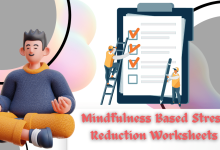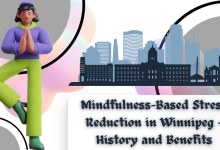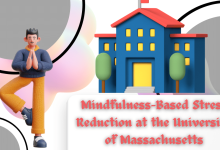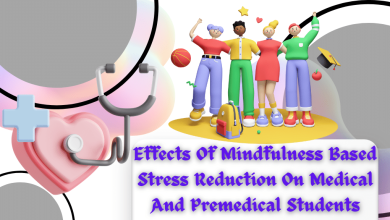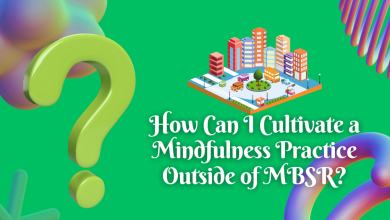Mindfulness Based Stress Reduction Training For Professionals
Introduction to Mindfulness-Based Stress Reduction (MBSR) Training for Professionals
Mindfulness-Based Stress Reduction (MBSR) is an evidence-based program designed to help individuals manage stress, anxiety, and other negative emotions.
In recent years, MBSR has gained popularity among professionals who work in high-pressure environments, such as healthcare, education, and business.
In this article, we will explore the benefits of MBSR training for professionals, the core components of the program, the role of mindfulness in professional settings, and tips for choosing the right training program.
Let’s Begin
The Benefits of MBSR Training for Professionals
MBSR training can provide professionals with a range of benefits, including:
1. Stress Reduction
MBSR can help professionals manage stress and prevent burnout, allowing them to perform at their best.
2. Improved Focus
By practicing mindfulness, professionals can improve their ability to focus and concentrate, making them more effective in their work.
3. Enhanced Emotional Regulation
MBSR can help professionals develop emotional intelligence, allowing them to better manage their emotions and respond more skillfully to challenging situations.
4. Better Communication
Mindfulness can improve communication skills, making professionals more effective in their interactions with colleagues, clients, and patients.
Understanding the Core Components of MBSR Training for Professionals
MBSR training typically consists of the following core components:
- Mindful Meditation: Participants practice various forms of mindfulness meditation, such as breath awareness, body scan, and loving-kindness meditation.
- Mindful Movement: Participants engage in gentle physical activities, such as yoga and walking meditation, to cultivate awareness and presence in the body.
- Mindful Inquiry: Participants engage in group discussions and self-reflection to deepen their understanding of their thoughts, emotions, and behaviors.
The Role of Mindfulness-Based Stress Reduction in Professional Settings

MBSR can be a valuable tool for professionals in high-pressure environments.
By developing greater awareness and presence, professionals can perform better, communicate more effectively, and manage stress more skillfully.
However, MBSR can also help professionals cultivate greater compassion and empathy, leading to better outcomes for clients and patients.
That’s that.
Moving on.
Tips For Choosing The Right MBSR Training Program for Professionals
When choosing an MBSR training program, it’s important to consider the following factors:
1. Teacher Qualifications
Look for a program taught by qualified and experienced mindfulness teachers.
2. Curriculum
Ensure that the program covers the core components of MBSR and includes ample opportunity for practice and reflection.
3. Time Commitment
Consider the time commitment required for the program and whether it fits with your schedule and professional obligations.
4. Cost
MBSR training programs can vary in cost, so it’s important to consider your budget and whether the program offers financial assistance.
The Cost and Time Commitment of MBSR Training for Professionals
MBSR training programs can vary in cost and time commitment. Some programs may require a significant investment of time and money, while others may be more accessible.
When considering the cost and time commitment of an MBSR training program, it’s important to weigh the potential benefits against your own professional and personal obligations.
How to Incorporate MBSR Techniques into Your Professional Practice
There are several ways to incorporate MBSR techniques into your professional practice, including:
- Take regular mindfulness breaks throughout the day, even if it’s just for a few minutes.
- Using mindfulness techniques to manage stress and prevent burnout.
- Practicing mindful communication with colleagues, clients, and patients.
- Using mindfulness techniques to enhance focus and concentration.
Case Studies: Real-Life Examples of Professionals Who Have Benefitted from MBSR Training
Real-life examples of professionals who have benefited from MBSR training include:
1. Healthcare Professionals
MBSR has been shown to be effective in reducing stress and burnout among healthcare professionals, who often work in high-pressure and emotionally demanding environments.
A study conducted with healthcare workers found that those who participated in an MBSR program reported significant reductions in stress and anxiety, as well as improved well-being and resilience.
2. Educators
MBSR has also been shown to benefit educators, who face high levels of stress and burnout due to their demanding workloads and the emotional demands of working with students.
A study conducted with teachers found that those who participated in an MBSR program reported reduced stress and burnout, as well as increased mindfulness and self-compassion.
3. Business Professionals
MBSR can also be beneficial for business professionals, who often face high levels of stress and pressure to perform.
A study conducted with business executives found that those who participated in an MBSR program reported improvements in emotional regulation, job satisfaction, and overall well-being.
Why Mindfulness-Based Stress Reduction Training is Essential for Professionals
In today’s fast-paced and high-pressure work environments, professionals need effective tools to manage stress, improve focus, and enhance emotional regulation.
Mindfulness-Based Stress Reduction (MBSR) training provides a research-backed and practical approach to achieving these goals.
By practicing mindfulness meditation, engaging in mindful movement, and participating in the mindful inquiry, professionals can develop greater awareness and presence, leading to improved performance, communication, and well-being.
Whether you work in healthcare, education, business, or any other professional field, MBSR can be an essential tool for managing stress and thriving in your work.
That’s all
We’ll pull the curtain here
